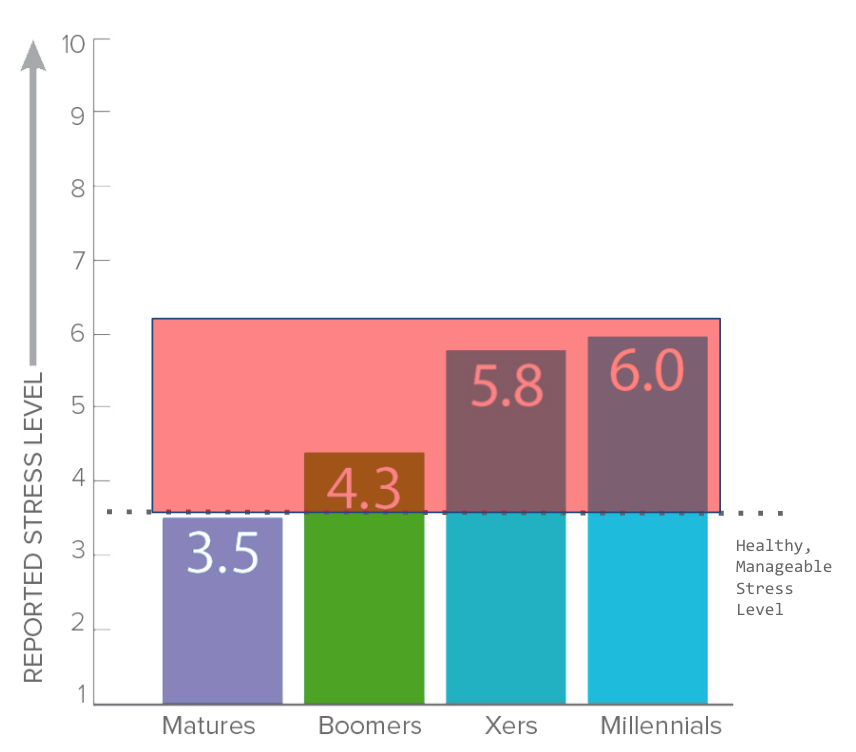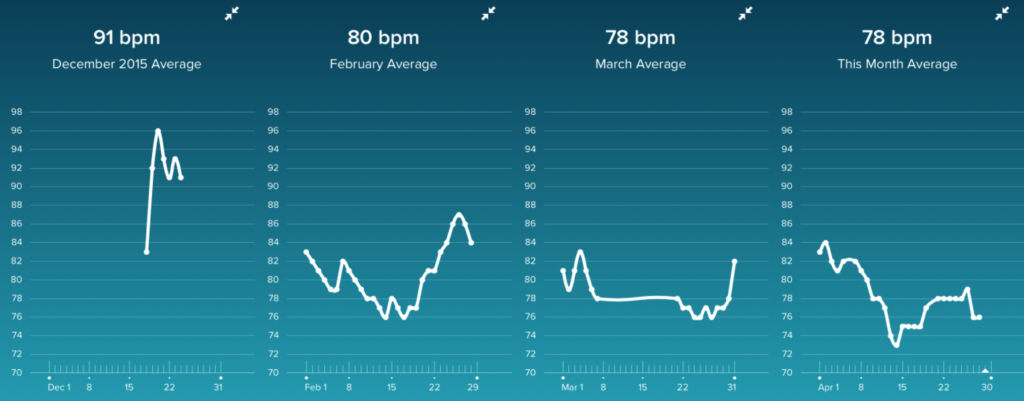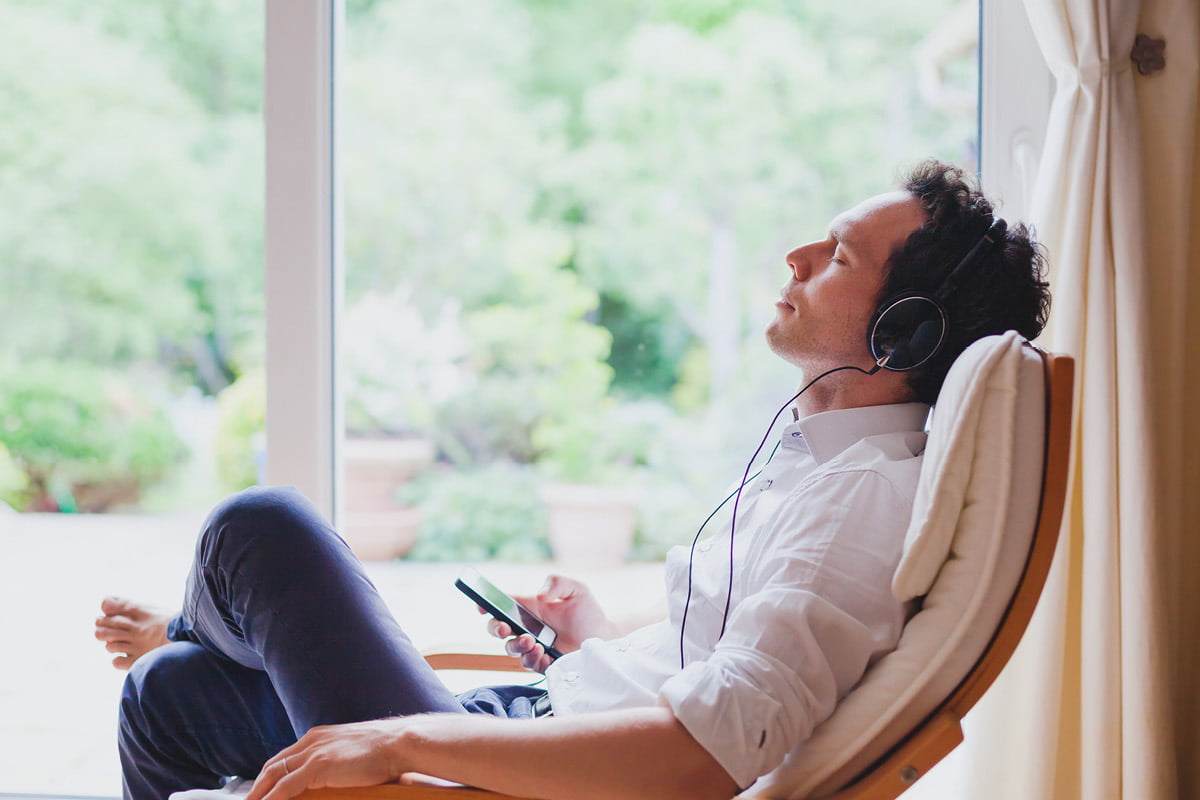One year ago I started working at RethinkCare, a company that makes wellbeing training software rooted in science, mindfulness and positive psychology. We create programs that help people relax, build up their stress resilience and focus, sleep better and be generally happier. We have a great mission. We have really cool offices. And we practice mindfulness meditation every day at 3:00pm.
Before joining RethinkCare, I had tried meditating only once back in college. I wasn’t a complete neophyte though. I had a regular-enough yoga practice. I had been through a couple weekend-long emotional intelligence training courses. And I live in the Bay Area, so derive from that what you will.
But mindfulness and meditation require discipline and regularity; behaviors for which I baselined at zero. So by virtue of my job, I spent the last year becoming a walking case study of what happens when you undertake a serious, daily mindfulness practice.
Here’s what I learned after working at a mindfulness company for a year.
Resilience, ya’ll.
When I tell people where I work I get responses like:
“Is everyone just super chill and laid back?”
“Do you guys just relax all day?”
“Do you guys go to Burning Man for your company retreat?”
“I wish I had that job!”
To which I respond, “Actually, RethinkCare is just like any other startup environment. It’s a high-performance culture. We work long hours to meet high expectations.” On top of that, it’s been among the most challenging jobs of my career. We’re literally creating a market space that’s been widening every day as more and more scientific research around mindfulness and resilience pours in. We’re growing at a pace that is tough to keep up with!
It’s a great problem to have– especially since there’s been a lot of payoff. We’ve developed terrific customer traction, amazing partnerships and we get weekly feedback that we’re changing people’s lives. 2017 is shaping up to be a banner year for the company. But the beautiful irony is that it can be stressful creating products to help people reduce stress. Even when things are going well (and sometimes especially when things are going well), stress can sometimes feel overwhelming.
All of this is on top of the stress that everyone feels– and every subsequent generation is feeling more acutely than the last. In fact, the APA recently released a study showing that Millennials (a demographic whose membership I begrudge) are the most stressed out generation ever. That’s really saying something since my two antecedent generations were both stressed more than is healthy or manageable.
So how does this square with spending a year at a mindfulness company?
Every day at 3:00 pm our team heads upstairs into our mindfulness practice room, which we call “Studio Fifty Flow,” and use RethinkCare’s digital training app for a 10-minute sit. That ten minutes has a profound impact. It’s not like that time is a release valve that we use to decompress every day. It’s practice and training that we take with us into the other 24 hours of our day.
This is an important point to make: mindfulness isn’t like the glass of wine you have at the end of the day to unwind. It’s a way to develop skills that help you:
- roll with the punches
- be more positive
- focus on what’s important
With stress levels as high as they are, obtaining those skills are critical to basic functioning. Two-thirds of companies say their employees are overwhelmed. Only one-fifth of companies are doing anything about it. Get with the program, guys.
Physical Wellness Through Mental Wellness
I was brought into RethinkCare to build our marketing program from scratch. It was a daunting role with lots of disparate responsibilities in what we’ve already established is a high-performance culture.
I didn’t have time to exercise. I wasn’t eating healthfully or sleeping well. I was busting my butt at work. But week after week my average resting heart rate kept decreasing, because of one tiny change in my daily routine: I started meditating for 10 minutes a day.
In just over four months, in spite of an increase in my work responsibilities and average stress level, my resting heart rate went down 13 points, from worryingly high to pretty normal, just using our products and the power of my mind.
If you do the math, it took me a total of 20 hours of meditating to get my resting heart rate down 13 points.
Learning to Get Stuff Done
I don’t consider myself unproductive or an underachiever. I worked my way through college, graduated with a triple-major in four years, and washed it all down with an MBA. I’ve hustled at startups my whole career. But my inner-critic would always tell me that I was being lazy, unfocused and unproductive.
As I developed a mindfulness practice, I realized that these feelings weren’t totally accurate. It was that my priorities were out of whack. Almost magically, practicing mindfulness every day revealed to me what my day’s (and in a way, life’s) priorities should be.
It’s not that I wasn’t getting things done; it was that I was getting the wrong things done. That’s a pretty big revelation. You don’t have much time during the day. If you don’t spend a little bit of that time understanding what you want to get done with it, you’ll waste even more of your day accomplishing the wrong things.
When life gets stressful and busy, things like exercising or meditating are the first things you cut out of your schedule. This is something else I learned; don’t. Force that time in there and I pinky swear to you that it will open more time up elsewhere.
Looking Back
After a year of consistent mindfulness practice, positive habit formation and neurological conditioning, I can say with certainty:
- I am a happier person
- I wake up in the morning more excited for the day ahead
- I go home every day feeling like I’ve accomplished something
- I blink less
- I’m better at listening to people
- I’m more curious
- there’s a subtle joy with all of those things that I hadn’t experienced before
I’m not born anew, spiritually enlightened, or in any sense “cured.” I still sometimes have trouble sleeping and often have that 3:00 am freakout where the only thing I can think about is work. That ashen cloud of existential dread still follows me around (hey, I’m a millennial). I still catch myself having the occasional amygdala hijack, but it happens way less frequently and with way less magnitude. And when it happens, I now have tools to put to work in that moment.
I’m not here to say that mindfulness is a panacea. Meditating and practicing healthy habit formation takes work, but it has a positive return. A return in more areas of my life than I’d ever imagined.
Want to learn more? Get our free eBook Make Wellbeing Your Competitive Advantage.












